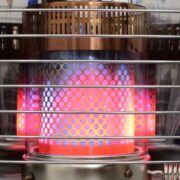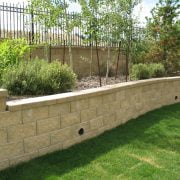Concerned about your safety with heating devices lately? Are you searching for a safe garage heater to keep your place warm and secure?
With winter on the rise and the temperature in fall, we are all looking for indoor heaters, but safety concerns lately have crossed our eyebrows.
It’s a fact that poor heaters have caused hazardous and harmful damages, and thus, a safe heater is the need of the hour.
But the question is what makes a heater safe and how to determine it. Read along as we unfold multiple aspects of a safe heater.
Safest Space Heater for a Garage

When trees shed leaves, and everything out there is white, we crave a warm indoors with delicious hot-from-the-oven cookies. But getting this warmth has been a red sign lately.
These days, markets are overflowing with different kinds of room heaters, and while some are very good, many have caused serious damage and burns all around the US. Therefore, getting the safest heater is the need of the hour.
Without beating the bush, we are here with the answers you seek. After a lot of extensive research and trial, we conclude that the best and safest garage heaters are Ceramic Space Heaters. Apart from these, oil-filled heaters are a good choice, too, but again, ceramic heaters are superior.
Another competitive option is propane-fueled or infrared heaters, but we have done the analysis, and they are not as safe as they claim.
However, the choice of the safest garage heaters depends on multiple factors, such as the size of your garage. According to the basic heater math, a 10-watt heater heats a square foot, so if you have the property of 200 square feet, you require a garage heater of at least 2000 watts.
There are other factors, like what is in your garage, whether children often enter the garage, whether there are flammable substances like diesel or gasoline, etc.
Are you also looking for a way of venting the garage heater through the wall but have had no luck so far? Check out the given link to learn the entire process.
Factors to Consider Before Deciding on The Heater
To ensure the safety of your garage, house, and rooms, getting a heater that provides premium safety conditions is important. Some certifications and guidelines are specially curated to maintain safety standards. Before you get a heater for your garage, make sure it meets these standards:
1. UL or ETL Certificates are Mandatory

A good and safe heater is certified, and makers ensure they have these certificates with their heaters. UL (Underwriters Laboratories) or ETL (Edison Testing Laboratories, also known as Intertek Testing Services) certify whether a heater is safe to use.
Every good and safe heater has these certifications; therefore, before buying a space heater for your garage, check the product description and determine whether it has the proper certifications.
Some companies focus on energy efficiency, and while this is a good factor to consider, it is nowhere in competition regarding safety. UL and ETL run these heaters to multiple rounds of tests.
On qualifying each of them (like whether they have a tip-over switch or if there is sparking while plugging in the heater to the socket, etc.), they pass the certificates.
2. Tip Over Switch is Important

Most fires caused by heating devices are reported due to their minus point of tipping over. Therefore, it is of utmost importance that the space heater has a tipping over protection so that it prevents things from catching fire kept nearby.
A tip-over switch is not powerful enough to stop tipping over. Rather, it is capable enough to turn the heater off when the heater is falling from a -45-degree angle. When the heater is turned off, the heat-exchanging element will stop immediately; hence, the possibility of fire is eliminated.
Therefore, ensure that the heater you purchase has a tip-over switch. It is an important feature that manufacturers highlight in product specifics, and if they have a UL or ETL certificate, then rest assured, the heater has one of these switches.
3. Autocut or Overheat Protection is Needed

This is another main feature manufacturers keep a strict eye on. While heating, a heater tends to get hot at extreme levels. In such a condition, it can potentially burn anything kept close to it, or even the heater catches fire at times.
Seeing the damages in history, the makers of today have incorporated an auto-cut feature. There is an internal thermometer set inside the safest heaters.
When the temperature in this heater rises from 150 degrees to 250 degrees Fahrenheit, the heat exchanger or the heater itself shuts off. It self-restarts when the temperature drops to safer degrees.
Getting a heater with overheating protection is the need of the hour. Not only do these heaters save themselves, but they also save you and your loved ones from hazardous loss.
4. Hidden Heating Elements are Necessary

We all have seen rod heaters and know how unsafe they are. Therefore, a good space heater must have its heating elements veiled inside its body. It is comparatively harder for the makers to do this in the case of Ceramic or Air forced heaters, but they are exceptionally important.
Most likely, the safest heaters, even if ceramic, have a sturdy sheet covering the heating parts. In terms of this condition, oil-filled heaters are a perfect pick.
Wrapping Up
Warming up the indoors is a dire need in the winter, but getting a heater is a tough choice. This must not be seen as a comforting addition; rather, safety is of utmost importance when buying a heater.
According to reports, almost 500 people die every year due to house fires, and it is something to be concerned about.
We have included every necessary detail about the best and safest space heaters. Look for the safety features, follow the manual provided, and practice all the safety measures at the very least. Happy Winters!














Comments